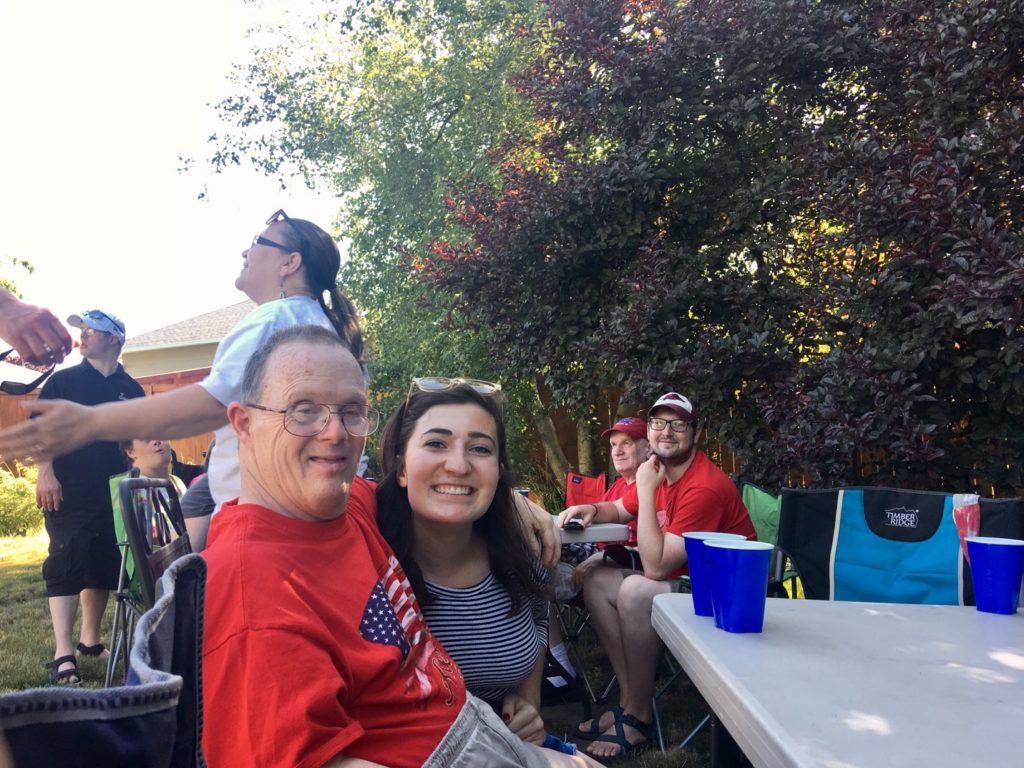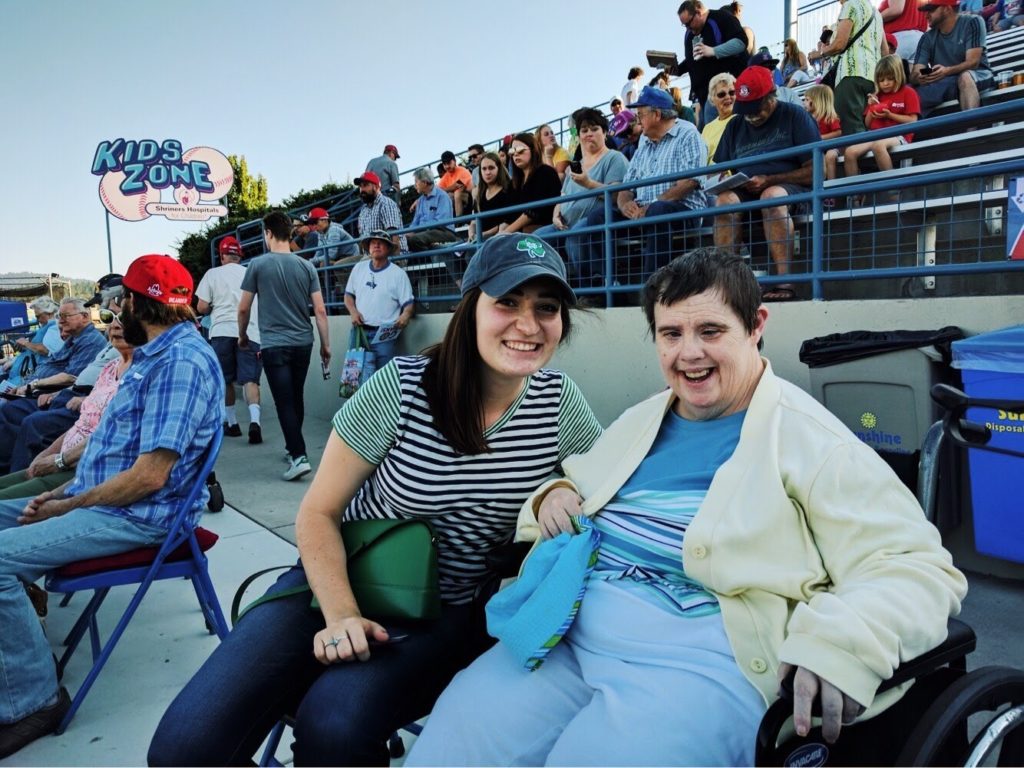Elizabeth Hascher, Senior Anchor Intern
Just as quickly as my summer began, it was over. Even though I hadn’t been on campus for eight months, it felt like it was just last week that I was loading up my car with storage tubs and driving away, golden dome in my rearview mirror. At first, the thought of coming back was terrifying. I left campus last fall feeling very much ready to leave. It was a semester with a lot of difficult moments, and it left me questioning if Notre Dame was the place for me.
That trying semester did come with some unexpected blessings, however. One thing led to another during the fall, and I was presented with the opportunity to spend my summer participating in an SSLP with the L’Arche community in Spokane, Washington. There are 137 L’Arche communities throughout the world, and each of them provides a home and community where people with and without intellectual disabilities share their lives with one another. They live and work together, form friendships and relationships of faith, and seek to strengthen and provide growth opportunities for their communities.
That all sounds great, but what L’Arche really looks like is living in a house with ten other people and just embracing life with one another. L’Arche is about drinking coffee with your friends in the morning and sitting on the porch for hours. It’s about dancing in the kitchen and praying together after dinner. It’s also about talking with one another and sharing feelings of sadness or frustration, or giving someone a hug after a difficult day. Sometimes it’s even about laughing really hard when someone farts unexpectedly during breakfast.

As I left my L’Arche family and came back to school, I carried this experience with me. Knowing that a lot had changed during my time away from campus, I thought about my time in Spokane and wondered how I would be able to take what I learned and share it with others. How would I be able to explain to people at Notre Dame what a radically different lifestyle L’Arche was, and how it taught me more than perhaps any class? Well, here it is.
Living with people with intellectual disabilities showed me that the way we spend our time says volumes about the values we hold. If we truly let our lives speak, we can learn a lot about ourselves. We may be surprised to find that we may not be honoring our values and beliefs quite the way we perceive ourselves to be. It should give each of us pause to think about times when we have valued worldly things, validation from others, and power over vulnerability, humility, and sharing our lives with each other. My time at L’Arche showed me that if I truly desire to let God work in my life, I must intentionally create spaces in which He can dwell.
Jean Vanier, the founder of L’Arche, writes in his book Becoming Human, “Weakness, recognized, accepted, and offered, is at the heart of belonging, so it is at the heart of communion with another.” If we are to invite God in, we must choose to make time for the moments of joy in our lives, but also for those times of pain and sorrow. We must be more open about offering this up with the people around us. It is in such moments, when we give each other even the tiniest of glimpses into what is on our hearts, that we come into communion with one another.
Through this communion of the heart, God enters our lives. God dwells in the spaces of brokenness and weakness, and he is present in times of joy and celebration as well. He is there when we share snacks and tell jokes with our friends, and when we tell someone how tough our day really was. He’s there when we dance in the car and when we need someone to help us get out of bed in the morning. When we share life with one another and become vulnerable in this way, we make room for God.

God seeks a personal relationship with each of us, and it is up to us to invite Him in through encounters of the heart. This means different things for everyone. Perhaps it is as simple as putting down your to-do list and taking a walk with a friend. Maybe it means sitting at dinner to talk for half an hour longer instead of catching up on your favorite TV show. It could even be simply being physically present to the person next to you. We can’t pretend to know everything that is on another person’s heart, but we can certainly make more of an effort to share what is on ours and be open to receiving that from others.
As tempting as it may be to say that everything is fine or pretend that life under the dome is all sunshine and tailgates, we are closing off our hearts to communion with each other and God when we do so. Jean Vanier also writes, “To speak of the heart is not to speak of vaguely defined emotions but to speak of the very core of our being.” If we are to cultivate our minds and our hearts here at Notre Dame, we need to be more intentional about opening our hearts to one another. It is then that we will begin to recognize God’s kingdom on Earth.